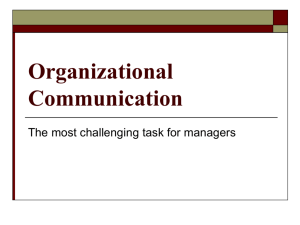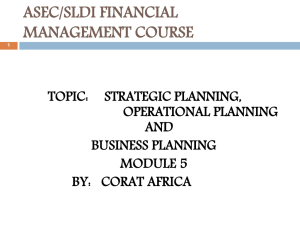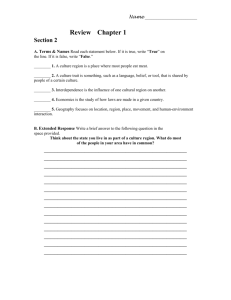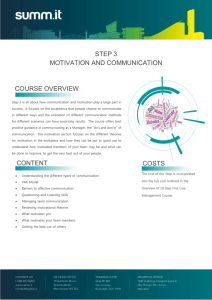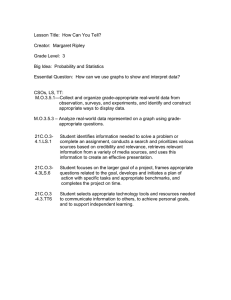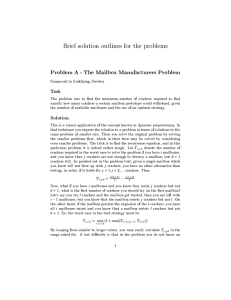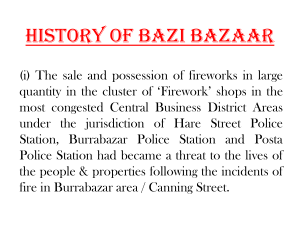Value - EconRocksMan
advertisement
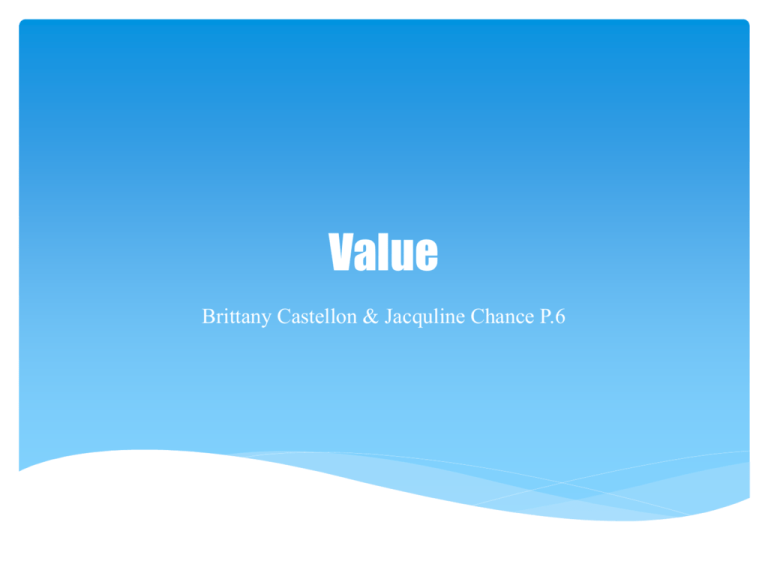
Value Brittany Castellon & Jacquline Chance P.6 The Definition of Value The worth of a good (product), or service determined by market and the tradeoffs they want to make given their scarce resources, or the value the market places on an item. Economic Value Economic value is measured by the most someone is willing to give up in other goods and services. For example, a person only has two goods chips or crackers. The value of the chips would be measured by the most crackers that the person is willing to give up to have one chip. In a market economy, dollars are a universally accepted measure of economic value, because the number of dollars that a person is willing to pay for something tells how much of all other goods and services they are willing to give up to get that item. Twelve Standard Forms of Value Product - Creating something real that people want. Service - When you help and provide some type of benefit to someone in exchange for a fee. Shared Resource - A durable good that you only create once and charge customers repeatedly to use. Subscription – Provides a touchable or untouchable benefit on an ongoing basis in exchange for a smaller pay. Resale – Buying a product from another business to sell it later at a higher price. Lease – Where you receive a good and then allow another person to use it for a specific amount of time in exchange money. Agency - Focuses on marketing and selling a product you don’t own. Audience Aggregation - focuses on catching the attention of a group of a people with the same characteristics, and then selling goods to that audience to a third party. Loan - An agreement letting people barrow a certain amount of money for a period of time in exchange for a series of payments till your loan is paid off. Option - Taking a limited action for a fixed period of time in exchange for a fee. Insurance - Focuses on transferring a risk from purchaser to seller in exchange for a series of payments. Capital - The purchase of an ownership stake in a business. If you have resources to allocate, you can provide capital to business owners to help them expand their business. The Paradox of Value The Paradox of Value is a contradiction that was discovered by Adam Smith who as one of the first people to describe how markets work. Adam Smith questioned, “Why do items have value? And why are some items more valuable then others? “ He then discovered that necessities that are needed, like water and food, are less valuable then nonnecessities, like jewelry.

